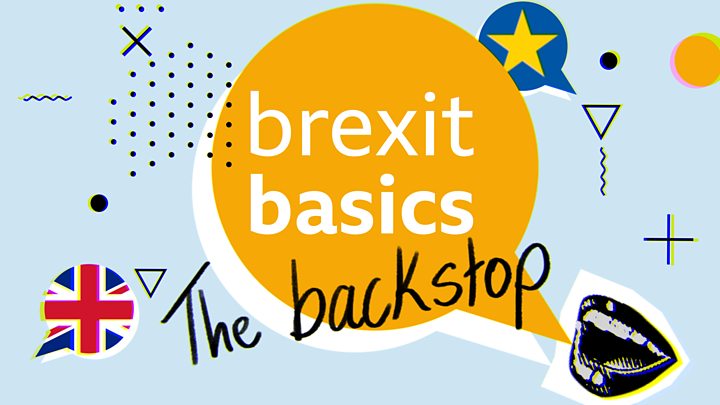The EU has tried very, very hard throughout this Brexit process to present a cool, calm, united front while political volatility reigns in the UK.
“They want to come across as the adults in the room,” one Spanish journalist put it to me.
But sometimes the EU’s distant, business-like veneer noticeably cracks.
There are a few memorable examples: President Macron describing Brexiteers who promised the UK a better life outside the EU as liars; Luxembourg’s prime minister recently pouring out in public the frustrations with the Brexit process felt privately by many in the EU; and now, on Tuesday, the president of the European Council, Donald Tusk, responding angrily to Downing Street finger-pointing about the state of Brexit renegotiations by addressing this tweet directly to the prime minister.
Mr Tusk’s flash of emotion did not go down well in European government circles at this sensitive juncture, as the EU leaders summit and the 31 October Brexit deadline fast approach.
The EU wants a deal and, if negotiations fail, it wants voters across the EU to believe that Brussels did its best – staying focussed on the facts at the negotiating table, rather than getting involved in cross-Channel mud-slinging.
And bang on cue, not long after Mr Tusk’s blame game outburst, the EU’s chief Brexit negotiator tweeted that “efforts continue to find an agreement with the UK”.
But no-one I speak to in the EU is holding his or her breath.
“We have no idea where the UK government wants to go in the next 20 days,” (ie before the 31 October Brexit deadline) a diplomat from northern Europe told me.
He said the EU was still unclear how high getting a Brexit deal featured right now on the prime minister’s list of priorities – compared, for example, with winning a general election.
So is the search for a deal now over in EU eyes?
Not really. The EU says it’s still open for talks. It hasn’t entirely ruled out the possibility of a deal by the end of this month.
Realistically though the prime minister’s proposals on how to replace the Irish backstop in a Brexit deal are hugely problematic for Brussels.
While diplomats praise some aspects of Boris Johnson’s offer, his insistence that Northern Ireland remains in the UK’s customs territory after Brexit leaves the EU with unpalatable choices:
Either a) having customs infrastructure on the island of Ireland, which Dublin says is a no no.
or b) the EU not controlling its customs border which Brussels says would both lead to smuggling and contravene WTO regulations.
One high-level EU diplomat joked: “If that customs border between the Republic of Ireland and Northern Ireland were left open, as the UK pretty much asks, then I would quit my job and start a smuggling enterprise. Far more lucrative.”
But the EU isn’t laughing. Or playing politics, insists Brussels. It says its objections to Boris Johnson’s customs proposals are practical, not political.
EU technocrats maintain that leaving a post-Brexit customs border open on the island of Ireland would compromise food safety and the safety of children’s toys, for example.
They warn that any accident or contamination would affect the whole single market plus the EU’s reputation amongst other trading partners.
“We won’t do that,” said a diplomat from a country traditionally close to the UK. “We can’t risk that.”
And if the EU did take that risk, then diplomats warn that Dublin would pay the price. Goods entering the single market via Ireland would be regarded with suspicion, they say, and the free movement of goods in the single market would be seriously compromised.
EU sources insist that whatever the Johnson government threatens or however it cajoles, the EU “can’t be bullied” into accepting the prime minister’s proposals as they stand.
“It would be easier if this discussion were about money,” a European civil servant told me. “Then both sides could haggle and reach agreement but there’s no compromising over food safety.”
EU diplomats say they accept the principle of two customs systems (EU and UK) on the island of Ireland but that it has to work.
EU leaders still look to the UK to be more flexible in its demands. Though they hear Boris Johnson when he says Northern Ireland must remain in the UK’s customs union to preserve UK unity.
As always when it comes to the backstop, Ireland has a big role to play here too.
Since the EU won’t compromise the single market, EU diplomats say Brussels will take its cue from Dublin as to how many checks/controls it could stomach on the island of Ireland.
The EU attitude here is: “What’s ok for Dublin, works for the rest of us”.
But the Johnson government has expressed frustration with the Irish government. Their belief is that Dublin is “holding out” on making compromises since they believe a new Brexit extension is around the corner.
And that is exactly what the EU thinks.
Though no-one I speak to is starry-eyed about the possibility of having more time to talk.
Whether next week or next month, a deal still needs to be found that’s acceptable to both sides – and not just to negotiators but to the European and the UK parliaments.
And no-one is sure what that would look like. Which is why the feeling in Brussels is that the chances of no deal have gone up again. Extension or no extension.
